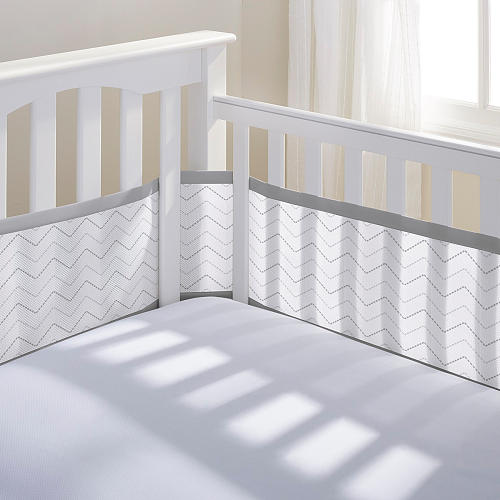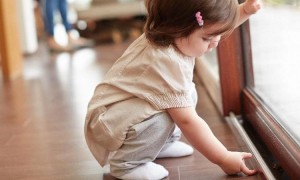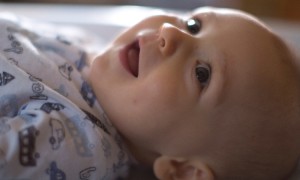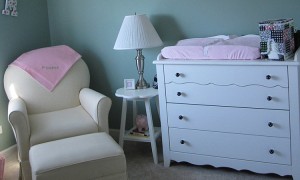As a soon to be mom I can tell you that “nesting” is a VERY real thing. Preparing my home for our newest addition to the family has been incredibly exciting but also a little stressful. Unlike a wedding registry where you don’t have to been concerned with the safety of your china set or linens, picking items for a baby registry requires research to ensure you are creating a safe environment for your child. One of the items that my husband and I have spent a lot of time learning about is the crib. Here are some great crib safety tips we have picked up along that way that I hope are helpful to you as you create your own nest for your little one.
Placement is Important
Picking out the right spot for your baby’s crib may seem like a no-brainer but there is actually a lot of factors to consider to ensure it is in the safest place.
Avoid Vents: You want to be sure that cold or hot air won’t be blowing directly onto your baby.
Stay Away from Windows: From cool drafts and the possibility of a window breaking to the terrifying thought of your child getting tangled in blinds and curtains, there are seemingly endless safety reasons why this isn’t the best spot for your baby’s crib.
Arms Length Away from (Fill in the Blank): Experts and veteran parents agree, placing a crib within arms length of door handles, electronics (this includes cords to baby monitors) and near items that your baby can pull into the crib pose a variety of threats. This tip matters more for little ones who are starting to test their “pull up and standing” skills but you might as well plan ahead.
Out with the Old and in with the New
Hand me downs are a wonderful thing for new parents…except when it comes to cribs. If you have a friend or family member who is offering up an older crib it is important to ensure it doesn’t have a “drop-side” rail or paint with lead in it which are huge no nos for crib safety. In June 2011, after 30 years of crib safety standards going unchanged, federal safety standards put out a statement prohibiting manufacture or sale of drop-side rail cribs which were deemed unsafe for babies. If you have your heart set on using a crib being passed down to you then be sure to check to see if it has been recalled. Click Here.

In addition, new regulations stated that all new cribs have stronger slats and mattress supports, better quality hardware and that they had to undergo rigorous testing. (source: healthychildren.org)
The CPSC also recommends checking for the following:
No missing, loose, broken or improperly installed screws, brackets or other hardware on the crib or mattress support.
No more than 2 3/8 inches (about the width of a soda can) between crib slats so a baby’s body cannot fit through the slats; no missing or cracked slats.
No corner posts over 1/16th inch high so a baby’s clothing cannot catch.
No cutouts in the headboard or foot board so a baby’s head cannot get trapped.
Less is Better
While it may be tempting to adorn your baby’s crib with plush stuffed animals, soft blankets and pillows all of these items could lead to suffocation or Sudden Infant Death Syndrome (SIDS). For infants under the age of one year it is important to keep the crib area free of the aforementioned items and to only use fitted bottom sheets that are made specifically for cribs.
Thanks to an awesome manager at Babies R Us in East Hanover, NJ I also learned that bumper pads, despite being in seemingly every crib advertisement, poise a serious risk to babies. “The American Academy of Pediatrics (AAP) strongly advises against using bumper pads — they increase the risk of SIDS and other crib-deaths. If you do decide to go against the AAP’s recommendations, skip the padded kind and use thin, breathable ones that fit firmly around the whole crib. Then take down the bumpers as soon as your baby can stand, so your little one won’t use them to climb out.” (What To Expect)

If you are worried about your baby getting a chill in the middle of the night consider buying a few comfy sleepsacks. (wish these came in adult sizes!)
Check the Fit

When buying a mattress size is extremely important. A safe fit means there is no space between the mattress and the crib. If you can fit two fingers between the mattress and crib then you need a larger sized mattress.
Looking for a decor and design inspiration for your baby’s room? Check out this post.







